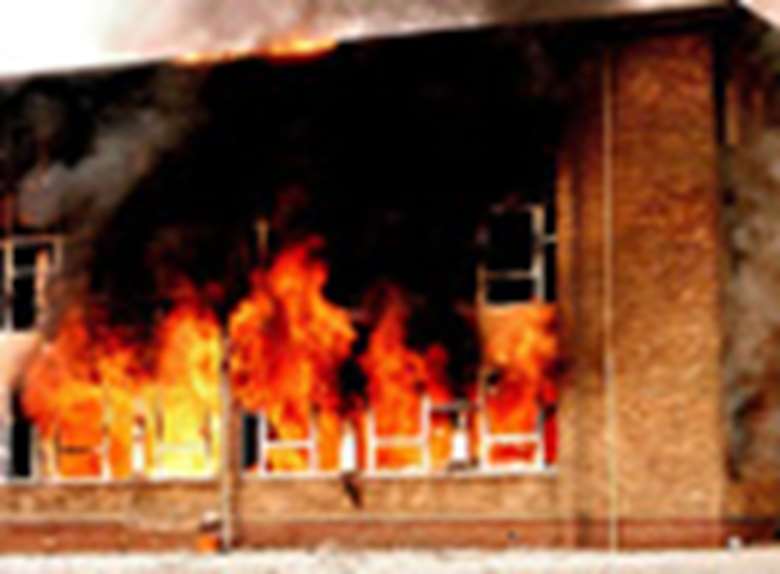School arson rife in past three years
Cathy Wallace
Tuesday, November 13, 2007
More than four in 10 schools in England and Wales have suffered at least one fire in the past three years, a study has revealed.

Research by the National Foundation for Educational Research (NfER) found up to three-quarters of all school fires are thought to be the result of arson and estimated that, in 2001 alone, the cost of these attacks was nearly £115m. The Department for Children, Schools and Families (DCSF) estimates 60 per cent of school fires are due to arson.
The findings coincided with the release of government guidance for schools on protecting against fire. The DCSF guidance includes advice on fire safety management and new safety standards for new and refurbished schools, including a requirement to install sprinklers.
Schools minister Jim Knight said he expects sprinkler systems to be built in all new schools. He added: "I am particularly concerned that 60 per cent of fires are started deliberately. Arson is a serious crime and a real threat to the communities targeted."
The NfER's study says fire damage to schools can affect examinations and cause disruption through rebuilding and lost school work. Schools affected by fires have also reported a drop in staff and pupil morale and even negative publicity about the school. The increase in extended schools means school fires can now affect the whole community, The Impact of School Fires study said.
Despite the devastating cost of a fire, the research found there are widespread perceptions that sprinkler systems are too expensive, likely to cause more damage than the fire itself, prone to malfunctions and can destroy school property.
However, the cost of installing sprinklers can be recovered in five years through reduced insurance premiums. The research has been released as part of the British Automatic Fire Sprinkler Association's Wise up to Fire campaign.
Stewart Kidd, secretary general of the association, said: "We are concerned to note myths about how sprinklers operate and their cost, and we will continue working to dispel these. This research should prove an effective weapon in the fight against fire and against the misunderstandings about fire prevention that are still prevalent."
- www.nfer.ac.uk
- www.dcsf.gov.uk.




